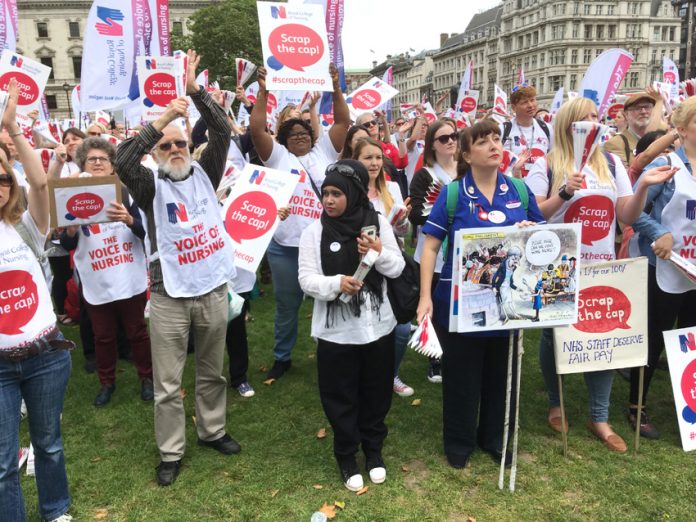
HEALTH and care providers must examine whether they have enough nursing staff to provide safe patient care this winter, the Royal College of Nursing urged yesterday as it revealed the concerns of 30,000 front-line staff.
More than half (55%) said shifts did not have the level of nurses planned and the shortage is compromising the care given to patients (53%). The RCN is calling on the boards of health and social care providers across the UK to urgently review nurse staffing levels, give public assurances on patient safety and take action where standards are not met.
The survey of nursing staff in all four UK countries asked about staffing levels on their most recent shift and the quality of care provided. More than a third (36%) report having to leave elements of patient care undone due to a lack of time, while two-thirds (65%) work an unpaid extra hour on average.
Seven in ten nurses (71%) in England said their last daytime shift exceeded NICE guidelines, which state that more than eight patients to one nurse should act as a ‘red flag’. A quarter (26%) reported shifts with 14 or more patients per nurse. Nursing staff working in hospitals rated the quality of care lower than those in community services such as district nursing.
Accident and emergency departments had the lowest quality ratings of all hospital services, with one in seven (14%) A&E nurses rating care as poor or very poor. Almost half of all respondents (44%) said no action was taken when they raised concerns about staffing levels.
Nursing staff rated the quality of care more highly when there are fewer patients for every one registered nurse, which supports recent research by Dr Jane Ball.The work, released last month, found a link between the number of registered nurses, patient care duties left undone and mortality levels. The report also states that short-sighted measures designed to cut costs led to unregistered nursing staff making up a greater proportion of the staff on duty.
The proportion of registered nurses on adult general wards has fallen to 48% this year, from 62% in 2009. The survey was carried out in May and suggests that pressures previously associated with the winter months have become common throughout the year.
The respondents also reported that:
• Patients are no longer afforded enough dignity, even dying alone.
• Colleagues are burned out and have become sick themselves, unable to come to work.
• Staff leave work ‘sobbing’ at the impact of shortages on patient care.
• Many question their future in nursing and contemplate leaving the profession.
• They struggle to give their children and families enough support after shifts that can exceed 12 hours.
The findings come after the nursing regulator, the Nursing and Midwifery Council, warned the nursing profession was shrinking as more people are leaving than joining the register. It is also expected that one in three nurses will retire in the next ten years.
The RCN is calling on providers of health and care services to urgently provide assurance to their boards that they are providing safe services. In addition, the Royal College of Nursing is calling for new legislation across the UK that guarantees safe and effective nurse staffing. It would give clear accountability and responsibility for workforce strategy, policy and planning and must lie at ministerial level.
The RCN repeated its call for increased funding for health and care services to meet the patient demand. RCN Chief Executive and General Secretary Janet Davies said: ‘When this many professionals blow the whistle, they cannot be overlooked. The nursing shortage is biting hard and needs the attention of Ministers – this warning comes from the very people they cannot afford to lose.’